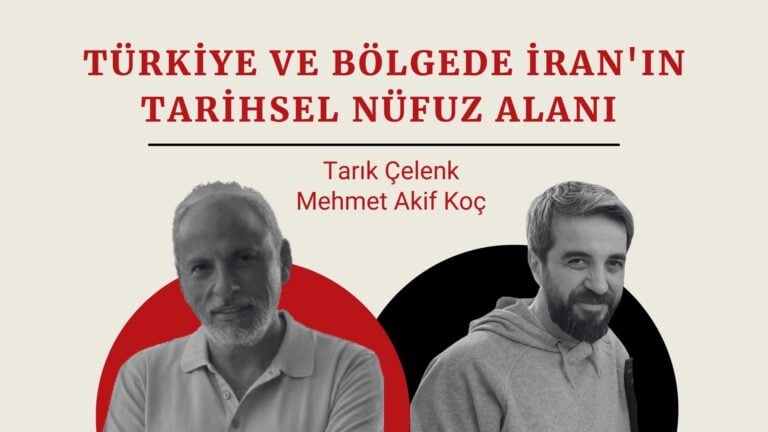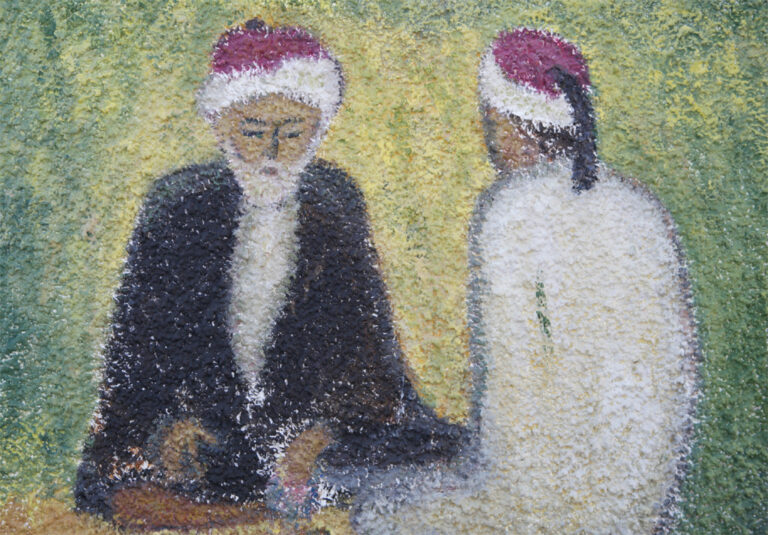These days, I have been pondering a little on the indisputable influence of the Jews in the history of world philosophy, science and politics. Not only do those who recklessly continue the genocide and massacre of innocents in the State of Israel come from within Judaism, but so do the philosophical and action-based groups that criticize it most harshly, as if recalling the verse “Verily, whoever of the believers, Jews, Sabians and Christians believes in Allah and the Last Day, and does righteous deeds, there is no fear for them, nor shall they grieve. (5 al-Ma’ida 69)”, and the groups that criticize it most harshly, both philosophically and in terms of action, come from within Judaism. Of course, these are not the subject of this article.
If you look at the history of Nobel prizes in the world, you can see dozens of Jewish scientists such as Albert Einstein, Niels Bohr or Milton Friedman. The Islamic world, with 23% of the world’s population, has less than 1% in scientific research. Nobel laureates, including our own Aziz Sancar, can be counted on the fingers of one hand.
Among the most influential thinkers in world history, there is an undisputed Jewish dominance. Levi-Straus, Erik Erikson, Hannah Arendt, Karl Marx, S. Freud and Moses Ibn Maimonides are just a few of the hundreds. The Islamic world, on the other hand, until the 15th century, was first in the lead and then in the zero position in producing intellectuals and philosophers such as Kindi , al-Farabi, Amiri, Avicenna, Ibn Miskawayh, Ibn Bacca, Ibn Tufayl and Averroes.
In this regard, Mustafa Akyol’s book “The Awakening of the Muslim Mind”, which I recently finished, and the interviews I had with Prof. Mustafa Öztürk and Ali Bulaç on Medyascope on “The role of madrasas in Islamic political thought” opened my horizons considerably.
The question in my mind was that there were serious methodological similarities between the Salafi background, strict theology and madrasa tradition and the institutions in Judaism where the Midrash and Talmud were taught. Many years ago, I met a Jewish family who were active participants in the Gaza protests in the U.S. They took me to see the young people who were studying hafiz in their Waqf institution. I was able to observe this closeness there. This strict Jewish tradition also preserved their identity, perhaps 2000 years old. However, between Jews and Muslims, who have a similar strict Sharia method and cultural background, one produces thinkers and scientists and the other not so much. So what made the difference?
In our country, the general approach is that a religious understanding that has built the mental infrastructure of the madrasa, which has closed its doors to the outside world for 600 years, cannot produce scientists and thinkers. Most of the scientists and thinkers who have emerged in Judaism are interpreted as achievements made by those who dared to confront Jewish theology.
When you read the question itself, you will realize the inadequacy of the above answer. First of all, we cannot define Judaism and the Islamic world in terms of a strict Midrashic or madrasa tradition. The formation of the secular aspect of this culture cannot be independent of these institutions. We can call Freud or Marx secular or agnostic. But we cannot neglect the fact that 2000 years of collective consciousness guided the way these philosophers thought.
Personally, I realize that one of the determining factors here is the nomadism and provincialism that the Islamic world has not been able to transform. The madrasas, scholars and Sufis were able to emerge from this sociology. Judaism, on the other hand, after the great exile, always had to deal with chattel. Jews always had to be in a state of compulsory urbanity. Real estate was a risk for them. Being a productive bourgeois locomotive, always based on real estate, could ensure their security.
The difference between the Islamic world and Judaism is perhaps less about sociology and more about the construction of a knowledge architecture, initiated by Moses Ibn Maimonides (d.1204 Egypt), on how the sacred texts of the Torah-Torah should be understood in the metaphysical-determinal realm relations. We can also call this epistemological codification.
When you can look at history honestly and objectively, we can see that the century of bliss of Islamic civilization was primarily the Andalusian period. There were autonomous areas created by Muslim states. Merchants could finance scholars. There was freedom and mutual exchange between Muslim, Jewish, Christian and Pagan thinkers. The Andalusian knowledge revolution, like the Renaissance, was in fact a translation from Latin and Greek of the ancient past’s experience of the ethereal and deterministic world. Ibn Rushd and his disciples peaked in this basin with the approach he developed on how the understanding of the Qur’an and the sacred cannot be independent of other civilizations, and how the intellect, inspiration, intuition, and the functioning of the material world can be understood with a philosophy. It was here that Muslims developed perhaps the most accurate method of how to understand Aristotle correctly.
Medyascope'un haftalık e-bülteni
Andaç'a abone olun
Editörlerimizin derlediği öngörüler, analizler, Türkiye’yi ve dünyayı şekillendiren haberler, Medyascope’un e-bülteni Andaç‘la her çarşamba mail kutunuzda.
This method was applied as a Christian theology by Thomas Aquinas, a Dominican and later a saint. The relationship between reason and religion became an integral part of this theology.
The Jewish physician Ibn Maimonides, a disciple of Ibn Rushd, had the opportunity to spread this method and turn it into a school while he was a ruler in Muslim countries. The principles in Maimonides’ book “A guide for the confused” were the principles of the Islamic faith, except for the imperative of belief in the Messiah. Although there were opponents of Maimonides’ tradition of interpretation, it became the basis for the “Haskalah”, the Jewish enlightenment. Moses Mendelssohn (d.1786) developed this tradition. The ancient Jewish Talmudic tradition was transferred to the newborn fields of secular culture. This, combined with the ability to think outside the box, brought the Jews great achievements in the arts and sciences.
Unfortunately, we have eliminated this path we started with Ibn Rushd due to the concern for the power of centralized autocratic governments. Judaism and the Christian world continue this tradition with the contribution of the Renaissance.
Today, if the Islamic world has a problem of not being able to produce a philosophy of morality and conscience, it is due to the historical confusion, both Sharia and theological, regarding the relationship between Islam and power that began with the liquidation of the systematic of the likes of Ibn Rushd.














